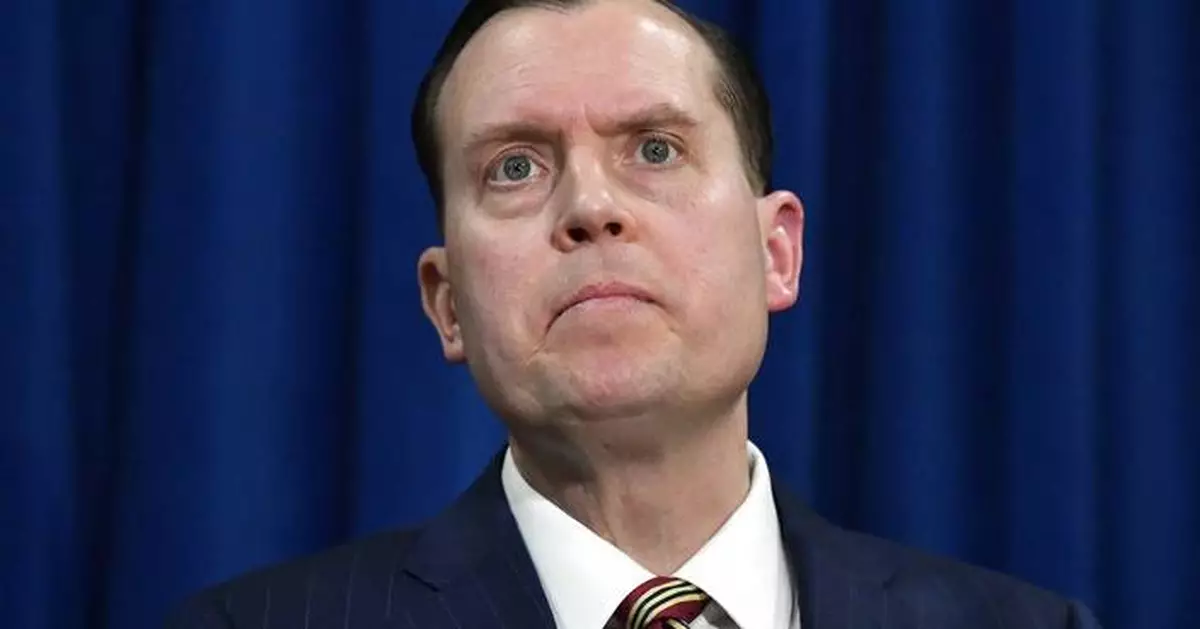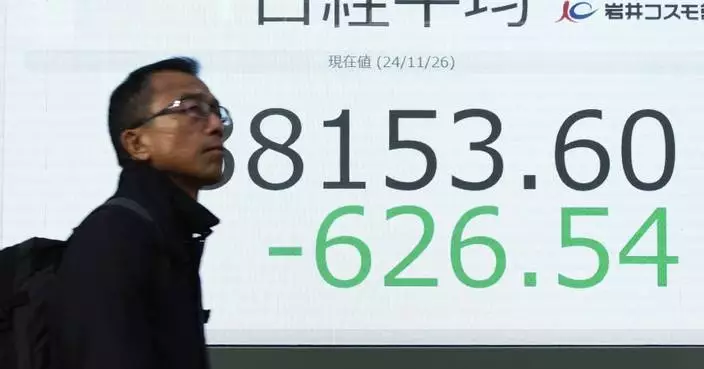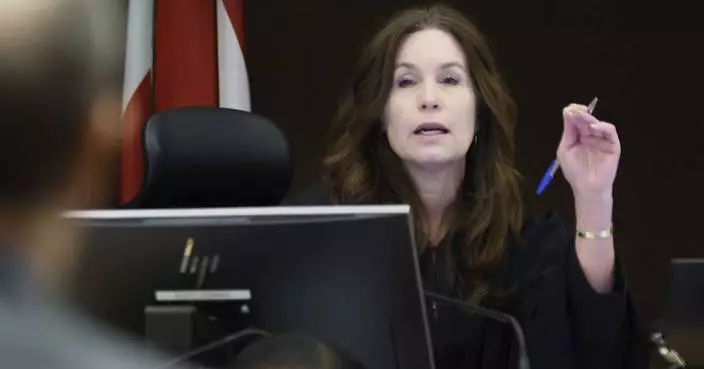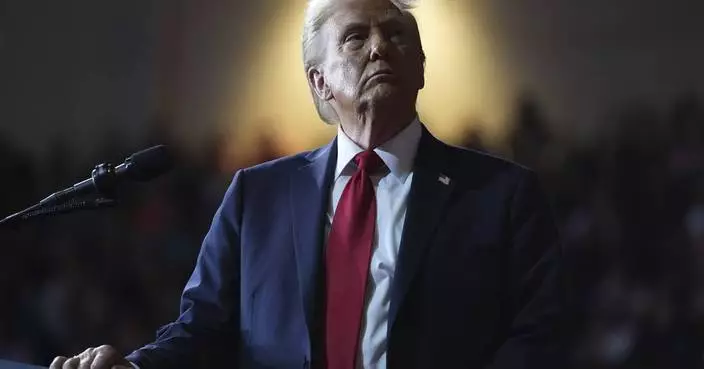FRANKFORT, Ky. (AP) — Kentucky's attorney general has expanded an opioid-related lawsuit to target another big pharmacy benefit manager that he claims contributed to the state's deadly addiction crisis.
OptumRx has been added as a new defendant in the suit that was filed two months ago, Attorney General Russell Coleman said Tuesday. His claims against Optum and its affiliated organizations are similar to those initially made against Express Scripts, which remains a defendant in the case.
The Republican attorney general accused Optum of playing a central role in what he called the reckless promotion, dispensing and oversupply of opioids. OptumRx controls a pharmacy network consisting of about 67,000 retail pharmacy locations nationwide, the suit said.
Kentucky was ravaged by the addiction crisis, resulting in some of the nation’s highest overdose death rates.
“These groups pushed a profit-fueled agenda at the expense of Kentucky families, who are left with empty seats at the dinner table,” Coleman said in a release.
Optum did not immediately respond to emails seeking comment Tuesday. When it was sued in September, Express Scripts responded that it has long worked to combat opioid overuse and abuse and would “vigorously contest these baseless allegations in court.”
Coleman initially filed the legal action in a state court, but the two sides are wrangling over whether it should be in state or federal court, his office said. He wants the case heard in state court.
Coleman has accused the defendants of using deceptive marketing to boost sales of highly addictive drugs. They also dispensed opioids through mail-order pharmacies without effective controls in violation of Kentucky and federal law, he said.
He is seeking, among other things, civil penalties for each willful violation of the Kentucky Consumer Protection Act, plus any other relief deemed appropriate by the court.
“Defendants have hidden their conduct through non-transparent business practices and by requiring each entity with whom they conduct business, such as opioid manufacturers, to enter into confidentiality agreements or otherwise keep their agreements confidential,” the lawsuit says.
Pharmacy benefit managers, or PBMs, run prescription drug coverage for health insurers and employers that provide coverage. They help decide which drugs make a plan’s formulary, or list of covered medications. They also can determine where patients go to fill their prescriptions.
PBMs have drawn the ire of politicians, patients and others for years. PBMs say they play an important role in controlling drug costs and pass along most of the discounts they negotiate to their clients.
Government lawsuits against pharmacy benefit managers are the latest frontier – and maybe the last big one – in years of litigation over the opioid-related drug epidemic in the U.S.
Drugmakers, wholesalers and pharmacy chains have already faced stacks of lawsuits and settled many of them, with most of the money required to be used to fight the overdose and addiction crisis.
Overdose death rates began steadily climbing in the 1990s because of opioid painkillers, followed by waves of deaths led by other opioids like heroin and — more recently — illicit fentanyl. A decline in U.S. drug overdose deaths appears to have continued this year, giving experts hope the nation is seeing sustained improvement in the persistent epidemic.
Drug overdose deaths in Kentucky fell nearly 10% in 2023, marking a second straight annual decline, but state leaders say fatalities remain tragically high and the fight against the drug epidemic is far from over. Nearly 2,000 Kentuckians died last year from drug overdoses.
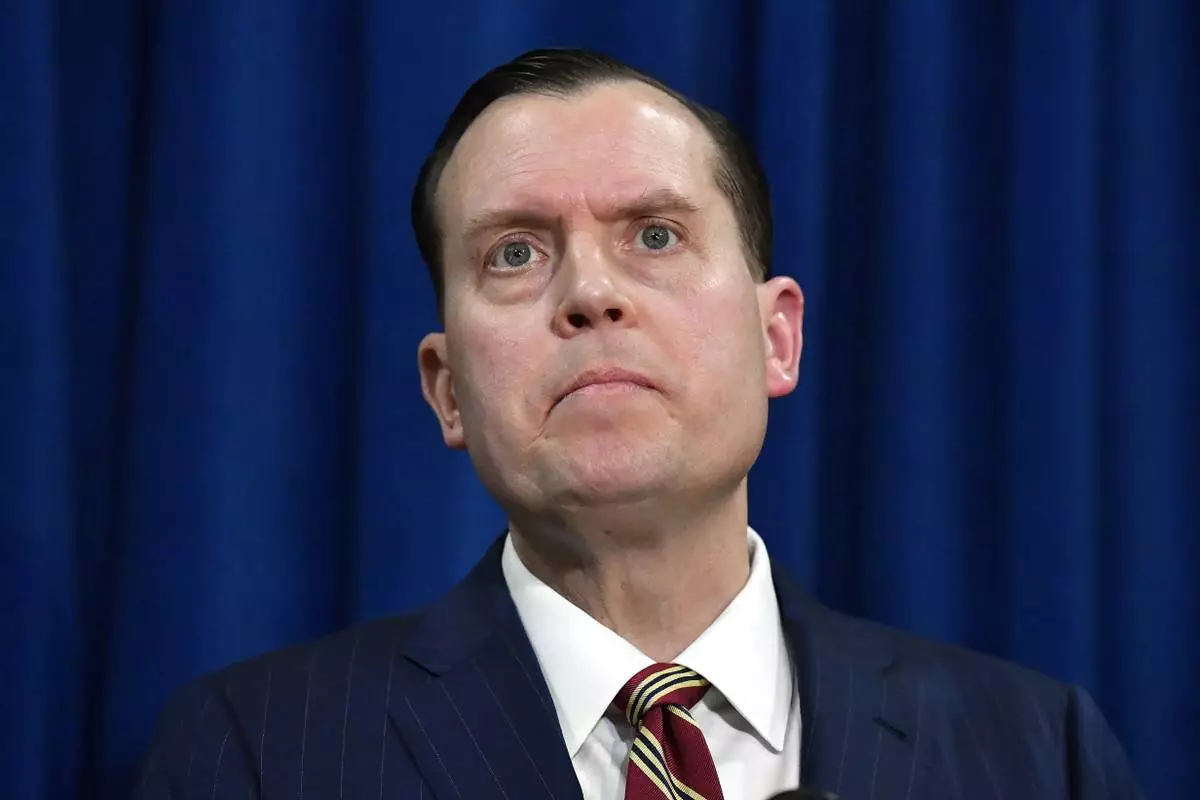
FILE - Kentucky Attorney General Russell Coleman speaks in Frankfort, Ky., Jan. 2, 2024. (AP Photo/Timothy D. Easley)
WASHINGTON (AP) — One year after the Jan. 6, 2021, U.S. Capitol attack, Attorney General Merrick Garland said the Justice Department was committed to holding accountable all perpetrators “at any level” for “the assault on our democracy.” That bold declaration won't apply to at least one person: Donald Trump.
Special counsel Jack Smith's move on Monday to abandon the federal election interference case against Trump means jurors will likely never decide whether the president-elect is criminally responsible for his attempts to cling to power after losing the 2020 campaign. The decision to walk away from the election charges and the separate classified documents case against Trump marks an abrupt end of the Justice Department’s unprecedented legal effort that once threatened his liberty but appears only to have galvanized his supporters.
The abandonment of the cases accusing Trump of endangering American democracy and national security does away with the most serious legal threats he was facing as he returns to the White House. It was the culmination of a monthslong defense effort to delay the proceedings at every step and use the criminal allegations to Trump's political advantage, putting the final word in the hands of voters instead of jurors.
“We always knew that the rich and powerful had an advantage, but I don’t think we would have ever believed that somebody could walk away from everything,” said Stephen Saltzburg, a George Washington University law professor and former Justice Department official. “If there ever was a Teflon defendant, that’s Donald Trump.”
While prosecutors left the door open to the possibility that federal charges could be re-filed against Trump after he leaves office, that seems unlikely. Meanwhile, Trump's presidential victory has thrown into question the future of the two state criminal cases against him in New York and Georgia. Trump was supposed to be sentenced on Tuesday after his conviction on 34 felony counts in his New York hush money case, but it's possible the sentencing could be delayed until after Trump leaves office, and the defense is pushing to dismiss the case altogether.
Smith's team stressed that their decision to abandon the federal cases was not a reflection of the merit of the charges, but an acknowledgement that they could not move forward under longstanding Justice Department policy that says sitting presidents cannot face criminal prosecution.
Trump's presidential victory set “at odds two fundamental and compelling national interests: On the one hand, the Constitution’s requirement that the President must not be unduly encumbered in fulfilling his weighty responsibilities . . . and on the other hand, the Nation’s commitment to the rule of law,” prosecutors wrote in court papers.
The move just weeks after Trump's victory over Vice President Kamala Harris underscores the immense personal stake Trump had in the campaign in which he turned his legal woes into a political rallying cry. Trump accused prosecutors of bringing the charges in a bid to keep him out of the White House, and he promised revenge on his perceived enemies if he won a second term.
“If Donald J. Trump had lost an election, he may very well have spent the rest of his life in prison,” Vice President-elect JD Vance, wrote in a social media post on Monday. “These prosecutions were always political. Now it’s time to ensure what happened to President Trump never happens in this country again.”
After the Jan. 6 attack by Trump supporters that left more than 100 police officers injured, Republican leader Mitch McConnell and several other Republicans who voted to acquit Trump during his Senate impeachment trial said it was up to the justice system to hold Trump accountable.
The Jan. 6 case brought last year in Washington alleged an increasingly desperate criminal conspiracy to subvert the will of voters after Trump's 2020 loss, accusing Trump of using the angry mob of supporters that attacked the Capitol as “a tool” in his campaign to pressure then-Vice President Mike Pence and obstruct the certification of Democrat Joe Biden's victory.
Hundreds of Jan. 6 rioters — many of whom have said they felt called to Washington by Trump — have pleaded guilty or been convicted by juries of federal charges at the same courthouse where Trump was supposed to stand trial last year. As the trial date neared, officials at the courthouse that sits within view of the Capitol were busy making plans for the crush of reporters expected to cover the historic case.
But Trump's argument that he enjoyed absolute immunity from prosecution quickly tied up the case in appeals all the way up to the Supreme Court. The high court ruled in July that former presidents have broad immunity from prosecution, and sent the case back to the trial court to decide which allegations could move forward. But the case was dismissed before the trial court could get a chance to do so.
The other indictment brought in Florida accused Trump of improperly storing at his Mar-a-Lago estate sensitive documents on nuclear capabilities, enlisting aides and lawyers to help him hide records demanded by investigators and cavalierly showing off a Pentagon “plan of attack” and classified map.
But U.S. District Judge Aileen Cannon dismissed the case in July on grounds that Smith was illegally appointed. Smith appealed to the Atlanta-based 11th U.S. Circuit Court of Appeals, but abandoned that appeal on Monday. Smith's team said it would continue its fight in the appeals court to revive charges against Trump's two co-defendants because “no principle of temporary immunity applies to them.”
In New York, jurors spent weeks last spring hearing evidence in a state case alleging a Trump scheme to illegally influence the 2016 election through a hush money payment to a porn actor who said the two had sex. New York prosecutors recently expressed openness to delaying sentencing until after Trump's second term, while Trump's lawyers are fighting to have the conviction dismissed altogether.
In Georgia, a trial while Trump is in office seems unlikely in a state case charging him and more than a dozen others with conspiring to overturn his 2020 election loss in the state. The case has been on hold since an appeals court agreed to review whether to remove Fulton County District Attorney Fani Willis over her romantic relationship with the special prosecutor she had hired to lead the case.
Associated Press reporter Lisa Mascaro in Washington contributed.
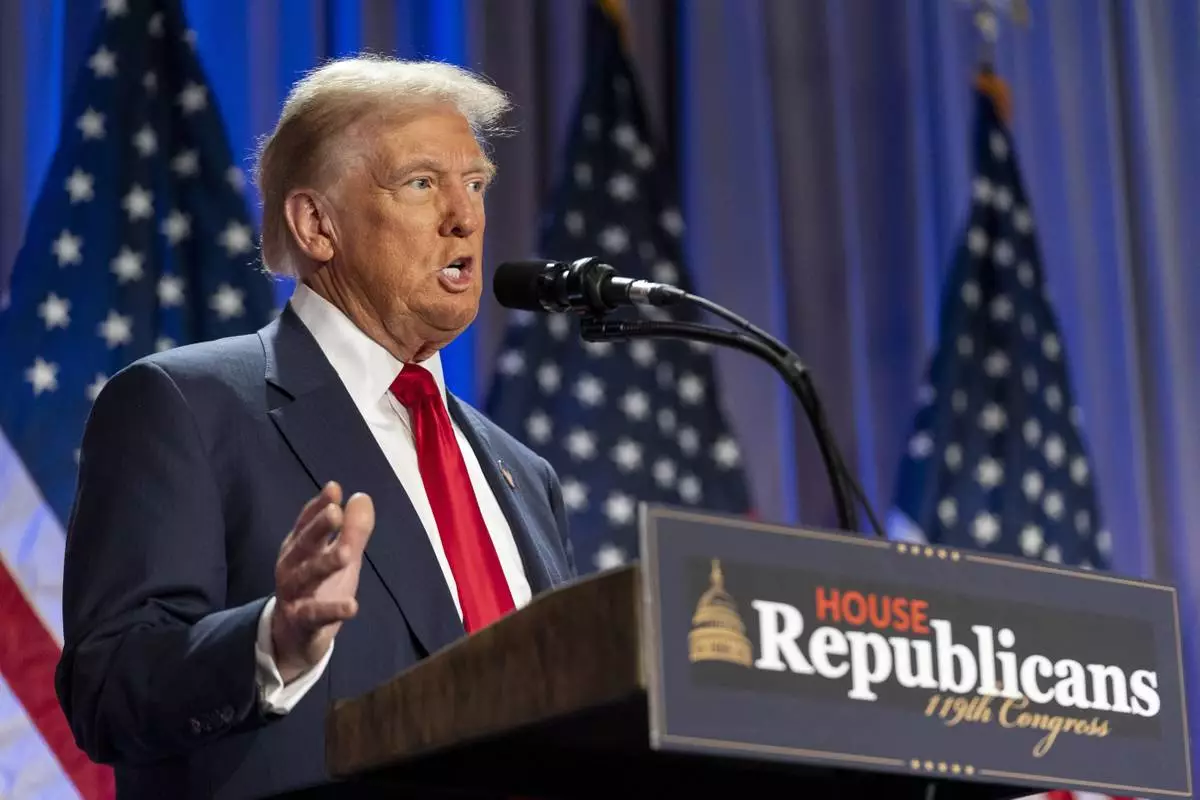
FILE - President-elect Donald Trump speaks at meeting of the House GOP conference, Nov. 13, 2024, in Washington. (AP Photo/Alex Brandon, File)



